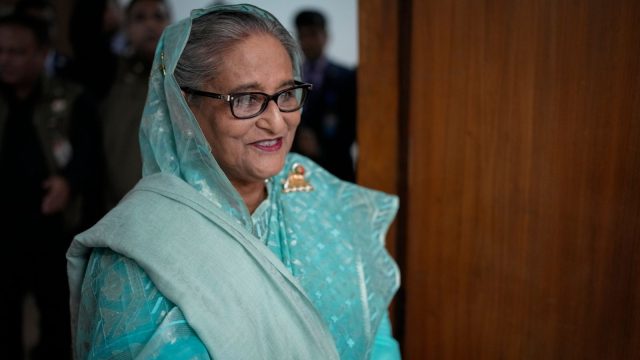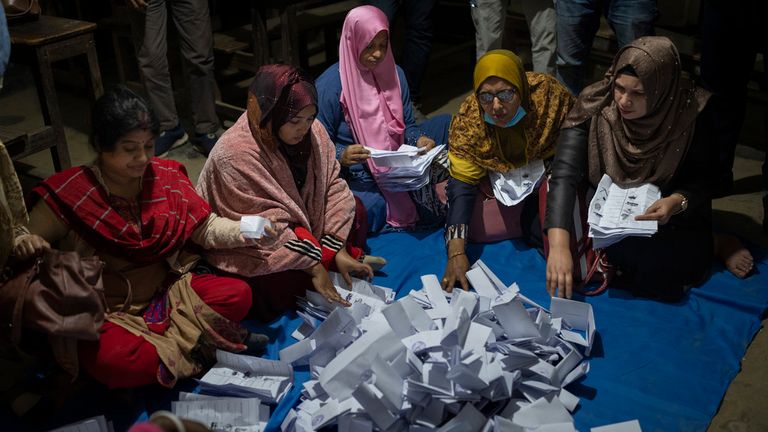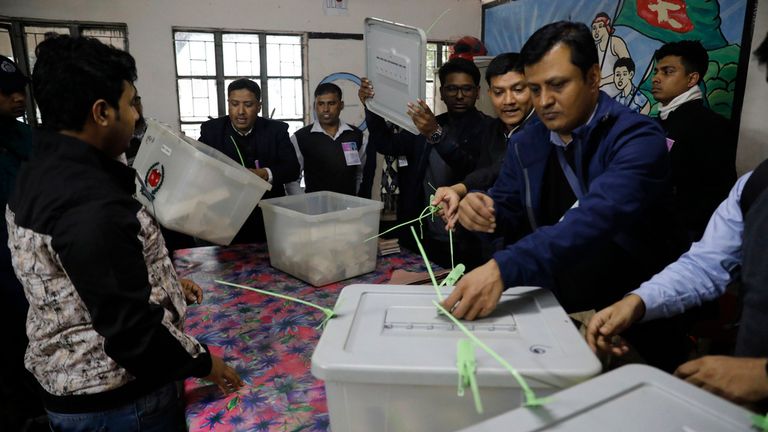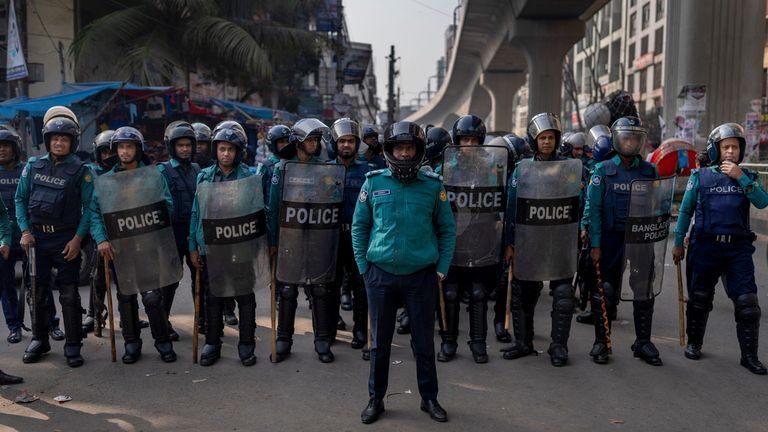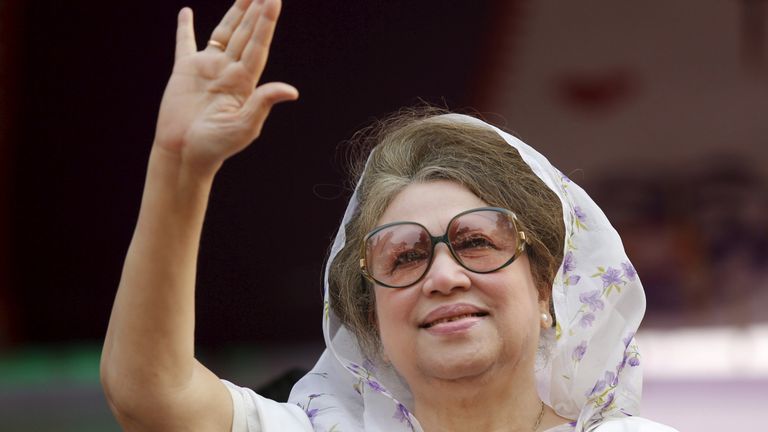Prime Minister Sheikh Hasina has won an overwhelming majority in Bangladesh’s parliamentary election, giving her party – the Awami League – a fourth consecutive term.
After an election campaign fraught with violence and a boycott from the main opposition party, it was widely reported that Ms Hasina’s party won 216 seats out of 299.
The win also means the 76-year-old has become the country’s longest-serving leader.
A final official declaration on the outcome of the vote is expected by the Election Commission on Monday.
Around 40% voted out of a total 120 million people who were eligible, according to Kazi Habibul Awal, chief election commissioner.
The main opposition Bangladesh Nationalist Party (BNP) led by former prime minister Khaleda Zia refused to accept the election outcome.
The party accuses Ms Hasina of turning Bangladesh into a one-party state and muzzling dissent and civil society.
Rivalry-fuelled violence
Both Ms Hasina and Ms Zia have run the country alternately for many years, their rivalry fuelling violence and a polarised political landscape in the country.
In the build-up to the election, there were at least 18 arson attacks, including one on a train on Friday night that resulted in four deaths.
Seven men belonging to the BNP and its youth wing were arrested for their alleged involvement in the train attack.
Read more world news:
Putin vows to back soldiers who ‘defend’ Russia
Girl stabbed outside Dublin school will need to ‘relearn everything’
197 planes grounded after Alaska Airlines blowout
The party deny any role in the attack.
Opposition leader Ms Zia has been under house arrest for over two years on corruption charges, which she denies.
Her party claimed around 20,000 of its members had been jailed ahead of the election, a figure which the government disputed.
The government went on to defend the election, saying 27 parties and 404 independent candidates participated.
But with scores of candidates from the Awami League running as independents and mostly smaller opposition parties in the race, analysts say Ms Hasina’s win was near inevitable.
Independent candidates took 52 parliamentary seats, while the Jatiya Party – the third largest in the country – took 11, according to TV stations.

